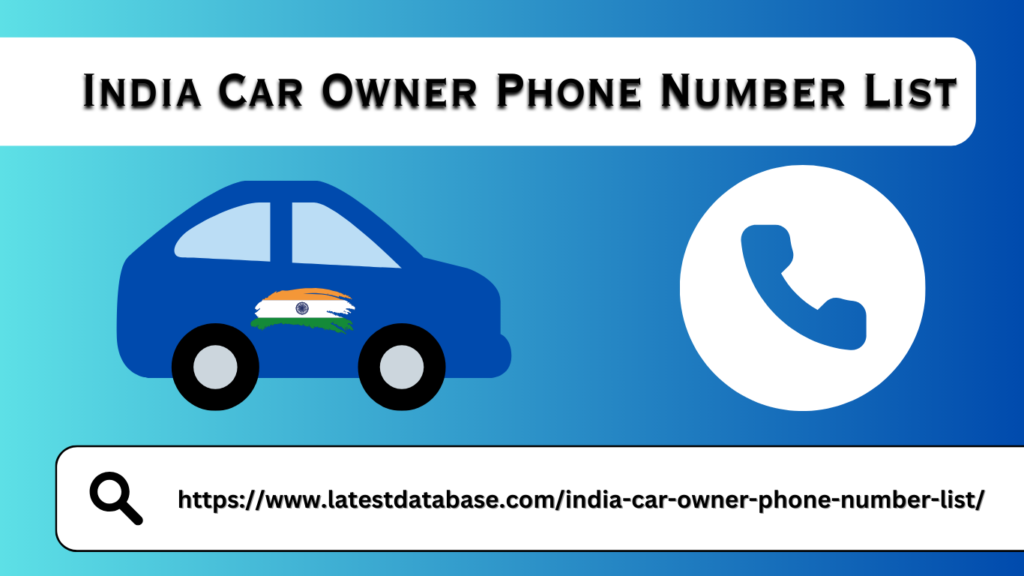Post by account_disabled on Mar 6, 2024 23:10:45 GMT -5
Utilize keyword research tools to discover popular and relevant keywords related to your industry. Incorporate these keywords naturally into your website's meta tags, headers, and content. For example, if you have an e-commerce site selling shoes, targeting keywords like "best running shoes" or "affordable sneakers" can attract the right audience to your website and improve your SEO ranking. tail keywords is a effective SEO ranking strategy. These are specific and less competitive search phrases that target a narrower audience.
By incorporating long-tail keywords in your content, you have a higher chance of ranking higher in search engine results. For instance, instead of using a broad keyword like "shoes," targeting a long-tail keyword like "men's running switzerland phone number shoes for flat feet" can attract India Car Owner Phone Number List a more specific audience seeking those exact shoes. Long-tail keywords help you increase visibility and attract potential customers who are closer to making a purchase decision. Remember to conduct thorough keyword research to identify relevant long-tail keywords to optimize your content. Optimizing Meta Tags and Headers Optimizing meta tags and headers is an important aspect of improving SEO ranking. Meta tags provide information about the content of your web page to search engines.

By including relevant keywords in your meta tags, you can signal to search engines what your page is about. Similarly, headers (H1, H2, etc.) help structure your content and provide clarity to both users and search engines. Make sure to incorporate keywords naturally in your headers to make them more SEO-friendly. For example, if your webpage is about "healthy cooking recipes," consider using headers like "Delicious and Nutritious Healthy Cooking Recipes." Such optimization can enhance your website's visibility and improve its ranking on search engine result pages. Optimizing Website Content Optimizing Website Content for SEO Ranking: Conduct thorough keyword research to identify relevant topics and target keywords. Incorporate target keywords naturally throughout your content, including in headings, titles, and body text. Ensure your content is informative, engaging, and well-written to satisfy user intent and encourage longer page visits.
By incorporating long-tail keywords in your content, you have a higher chance of ranking higher in search engine results. For instance, instead of using a broad keyword like "shoes," targeting a long-tail keyword like "men's running switzerland phone number shoes for flat feet" can attract India Car Owner Phone Number List a more specific audience seeking those exact shoes. Long-tail keywords help you increase visibility and attract potential customers who are closer to making a purchase decision. Remember to conduct thorough keyword research to identify relevant long-tail keywords to optimize your content. Optimizing Meta Tags and Headers Optimizing meta tags and headers is an important aspect of improving SEO ranking. Meta tags provide information about the content of your web page to search engines.

By including relevant keywords in your meta tags, you can signal to search engines what your page is about. Similarly, headers (H1, H2, etc.) help structure your content and provide clarity to both users and search engines. Make sure to incorporate keywords naturally in your headers to make them more SEO-friendly. For example, if your webpage is about "healthy cooking recipes," consider using headers like "Delicious and Nutritious Healthy Cooking Recipes." Such optimization can enhance your website's visibility and improve its ranking on search engine result pages. Optimizing Website Content Optimizing Website Content for SEO Ranking: Conduct thorough keyword research to identify relevant topics and target keywords. Incorporate target keywords naturally throughout your content, including in headings, titles, and body text. Ensure your content is informative, engaging, and well-written to satisfy user intent and encourage longer page visits.
